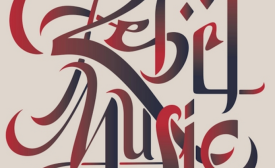music diplomacy
For several years now, American and German officials have struggled with how best to respond to Deso Dogg. The Ghanaian-German artist, whose legal name is Denis Cuspert, gained popularity during the mid-2000s as a pioneer in Germany’s gangsta-rap scene, performing with DMX and recording tracks like “Gangxtaboggy,” “Daz Iz Ein Drive By,” and “Meine Ambition Als Ridah.”

In "Rebel Music: Race, Empire, And The New Muslim Youth Culture", Hisham Aidi examines the connection between music and political activism among Muslim youth around the globe.
His book takes us on a musical tour from hip-hop in Brazilian favelas to Gnawa-reggae in North Africa. Aidi highlights the U.S. State Department’s use of hip-hop as a diplomatic tool, sending hip-hop envoys to Muslim countries around the world.
Monzer Darwish is a 23-year-old graphic designer and metal fan from Al Salamiyah, Syria, a district near Homs. For the last five months he’s been travelling around the country and visiting refugees in Lebanon for a documentary he’s making about underground metal bands in war-torn Syria. Needless to say, it's a tough gig.
One of the odder phenomena of the last decade is hearing national security elites, terrorism experts, and career diplomats discuss the finer points of “flow,” “bling,” and the “politics of cool.” American and European terrorism experts have increasingly expressed concerns over “anti-American hip-hop,” accenting the radicalizing influence of the genre.
Imagine if you’d heard all your life that your relatives were musicians, then one day you find out your grandfather and his brother were, say, Simon and Garfunkel.
This video features a hip hop music festival to celebrate 60 years of Myanmar-Japan diplomatic relations and was held in Yangon, Burma. The festival was organized by the Japan embassy in Myanmar and featured hip hop artist from both Myanmar and Japan. Cultural diplomacy was on display by celebrating shared music and dance.
“There were no YouTube videos, online sites, or DVDs. The culture wasn’t there yet. I could hardly find any video cassettes to learn the dances from,” explains Sargis Andreasyan, better known as Godfather Flash among fellow break-dancers in Yerevan, Armenia.







